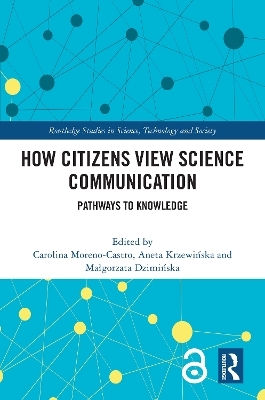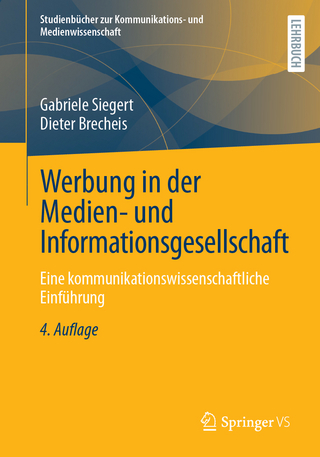
How Citizens View Science Communication
Routledge (Verlag)
978-1-032-51066-8 (ISBN)
Science communication aims at the successful sharing and explanation of sciencerelated topics to a wider audience. In order to enhance communication between science and society, a better understanding of citizens’ habits and perceptions is needed. Therefore, it is vital to understand how citizens acquire knowledge about science- related issues, how this knowledge affects their beliefs, opinions and perceptions, and what sources of information they choose to learn about science – and how they assess their reliability. This book addresses these questions, based on the analyses of public consultations data from Italy, Poland, Portugal, Slovakia and Spain, concerned with the science communication of issues including climate change, vaccines, complementary and alternative medicine (CAM) and genetically modified organisms (GMOs). Sharing experiences of how to engage citizens in public consultation, it provides insights into the mobilisation of interest in science and offers recommendations on how to improve science communication.
The Open Access version of this book, available at http://www.taylorfrancis.com, has been made available under a Creative Commons Attribution-Non Commercial-No Derivatives (CC-BY-NC-ND) 4.0 license.
Carolina Moreno-Castro is an expert on science communication research. She leads ScienceFlows, a research team focused on analyses of how perceptions and opinions about science are constructed among citizens (general audience, scientists, stakeholders and other social agents) and the role played by media, social networks and other platforms in disseminating science information. Aneta Krzewińska is an author of methodological publications. She implemented 30+ qualitative and quantitative research studies. Her scientific interests include deliberative techniques and social research methodology. She is actively searching for new tools to collect citizens’ opinions and carries out methodological tests on the techniques of group decision- making and consensus reaching. Małgorzata Dzimińska is a researcher on higher education. She conducts studies on quality, knowledge and innovation management at universities. She actively promotes science communication and community- based participatory research. She is a member of the Society for Research into Higher Education (SRHE) and the European Higher Education Society (EAIR).
Introduction 1. Behind the Scenes: The CONCISE Public Consultation Methodology 2. The Trustworthiness and Reliability of Science Information Channels and Sources in the Public’s View 3. Perceptions of Science Information on Climate Change and GMOs 4. What Do Citizens Want? Science Communication in the Eyes of the Public 5. Citizens’ Acceptance of Public Consultation Rules: Results of the CONCISE Project Evaluations
| Erscheinungsdatum | 23.03.2024 |
|---|---|
| Reihe/Serie | Routledge Studies in Science, Technology and Society |
| Zusatzinfo | 18 Tables, black and white; 5 Line drawings, black and white; 5 Illustrations, black and white |
| Verlagsort | London |
| Sprache | englisch |
| Maße | 156 x 234 mm |
| Gewicht | 476 g |
| Themenwelt | Naturwissenschaften |
| Sozialwissenschaften ► Kommunikation / Medien ► Kommunikationswissenschaft | |
| Sozialwissenschaften ► Soziologie | |
| ISBN-10 | 1-032-51066-8 / 1032510668 |
| ISBN-13 | 978-1-032-51066-8 / 9781032510668 |
| Zustand | Neuware |
| Informationen gemäß Produktsicherheitsverordnung (GPSR) | |
| Haben Sie eine Frage zum Produkt? |
aus dem Bereich


